How To Kill Japanese Beetles
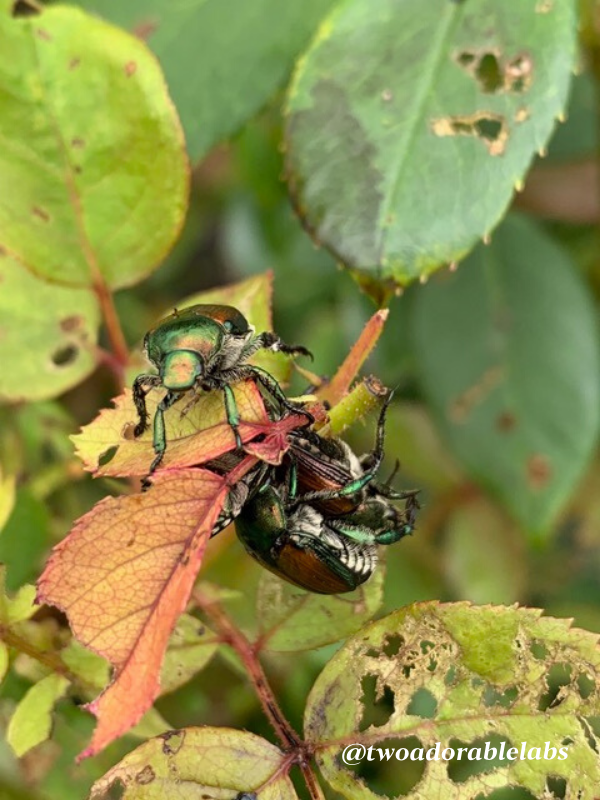
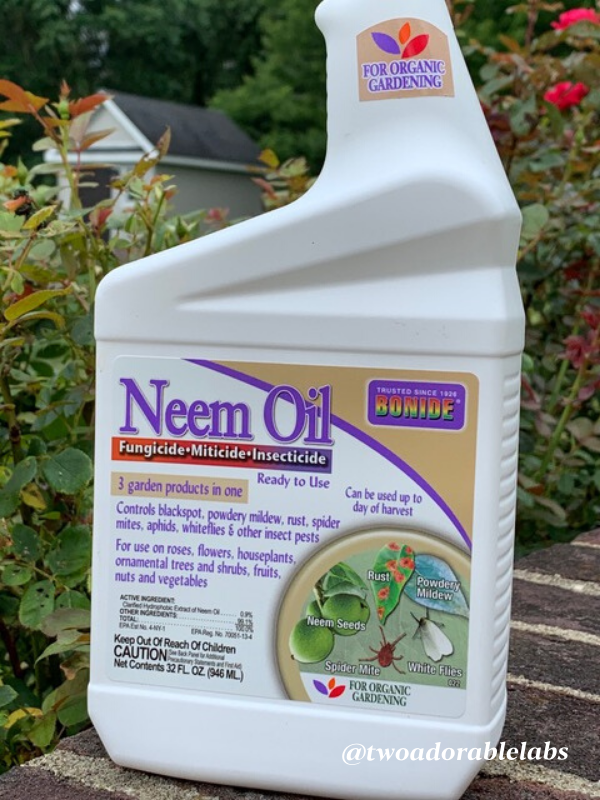
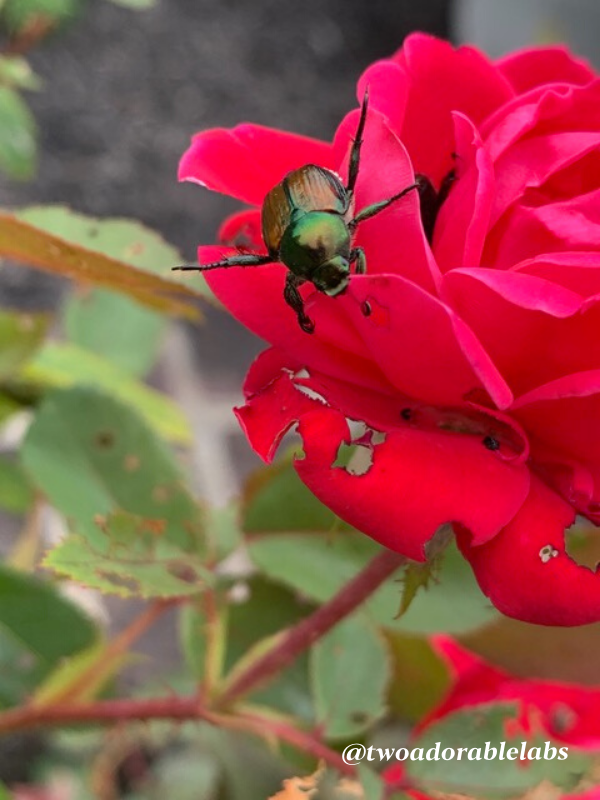
Adult Japanse Beetles
- Approximately 1/3 to 1/2 inch long.
- Metallic green head and thorax (the area behind the head) with copper-brown wing covers.
- Sides of abdomen have five white patches of hairs, and tip of abdomen has two patches of white hair.
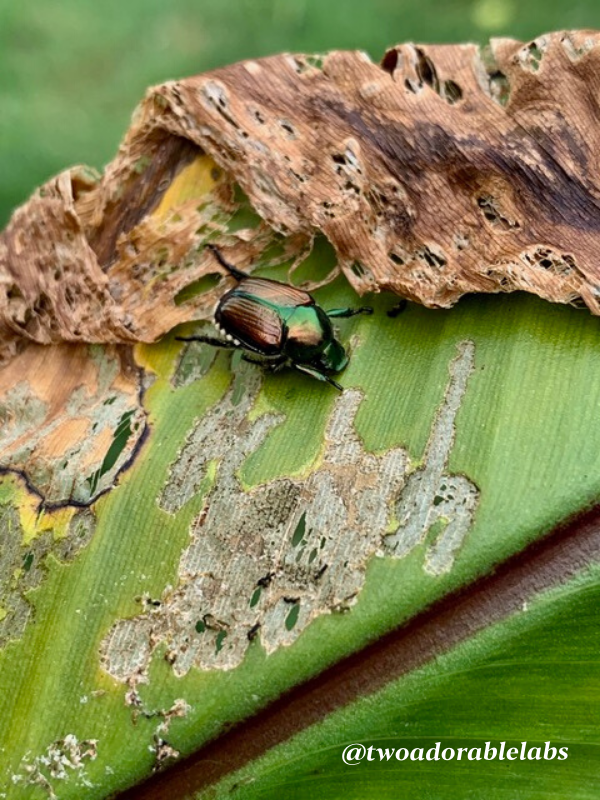
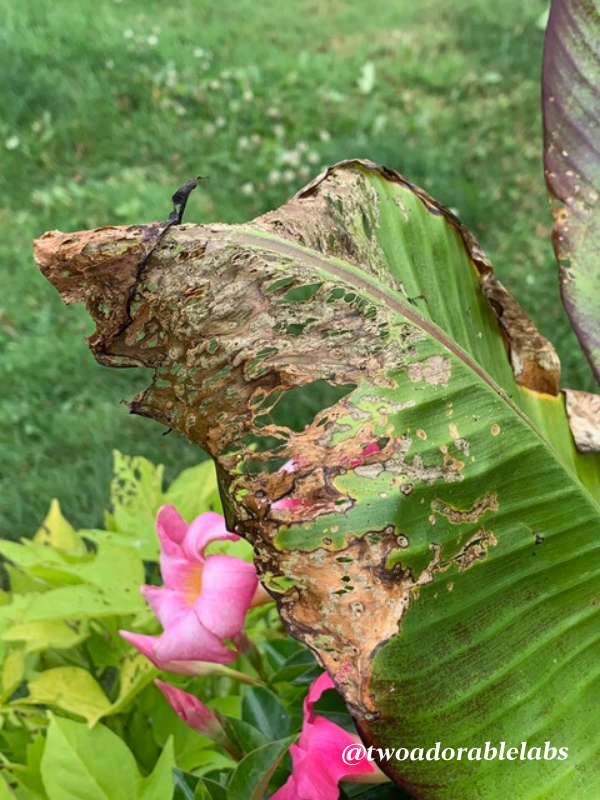
- Start looking in your gardens and lawn late June early July
- Damaged leaves attract Japanese beetles so make sure your shrubs, flowers, and plants are treated
- Japanese beetles feed for six to eight weeks so it is important to continue management until their numbers decrease. Once they are present in large numbers, managing them becomes more difficult.
- Most feedings are finished by mid to late August.
Larva (white Japanese grubs)
- C-shaped, white to cream-colored grubs with a distinct tan-colored head.
- Legs are easy to see.
- From 1/8 inch up to about one inch long.
- Japanese beetle grubs look like other white grubs and can only be positively distinguished by examining the pattern of spines and hairs on the underside of the tip of the abdomen.
- Grubs chew grass roots and reduce the ability of grass to take up enough water and nutrients to remain healthy. When grub feeding is severe, dead patches of grass develop.
- Controlling Japanese beetle grubs is unlikely to reduce numbers of adults on landscape plants because beetles emerging from non-treated grass areas can fly considerable distance to preferred adult food plants. Only treat white grubs to protect lawns from damage.
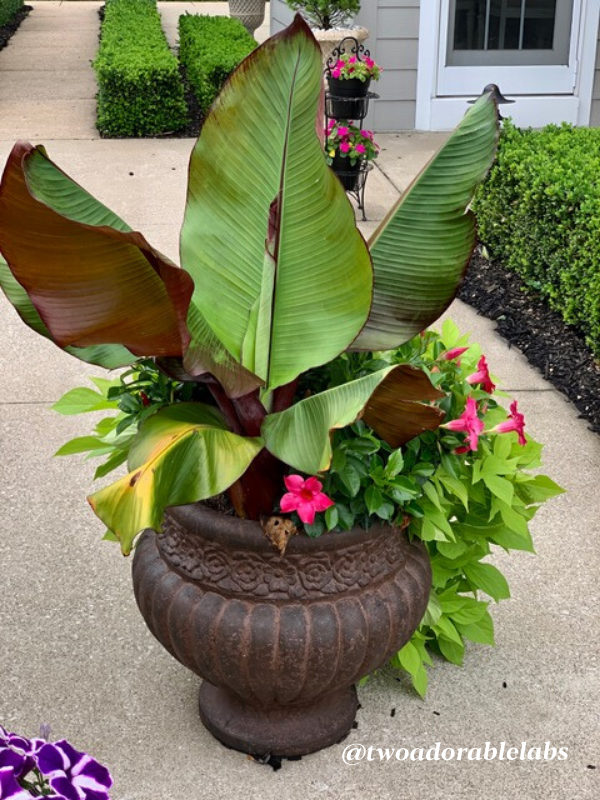
Learn how and when to treat Japanese beetles and grubs with Blain’s Farm & Fleet.
The immature stage of the Japanese beetle – the white grub – typically has a three year life cycle. However, most of the damage to ornamentals and turf grass happens during the spring and fall the second year. This is when grubs are present in the top inch of the root zone, heavily feeding on grass roots and thatch. In the third year of the cycle, the grubs rise out of the soil as Japanese beetles. These beetles feed on surrounding plants and lay eggs in the soil throughout the summer. These eggs eventually hatch into grubs and the cycle begins again.
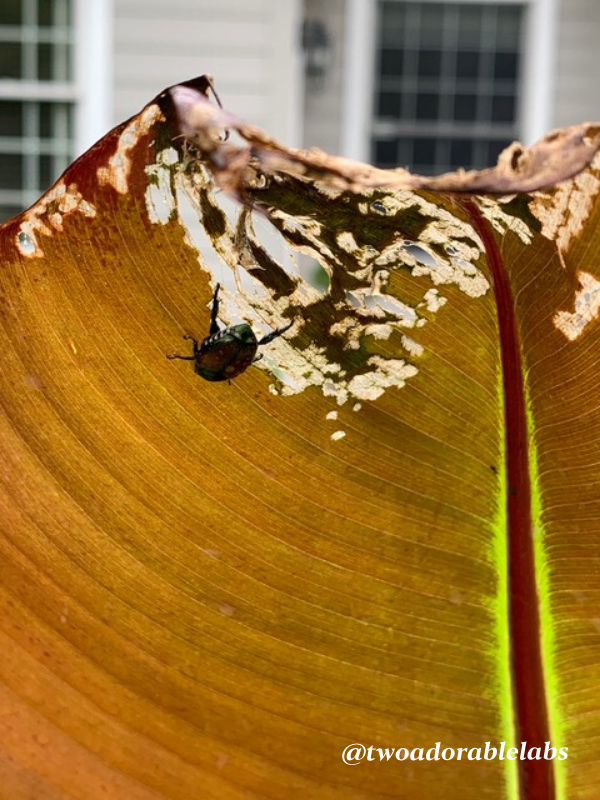
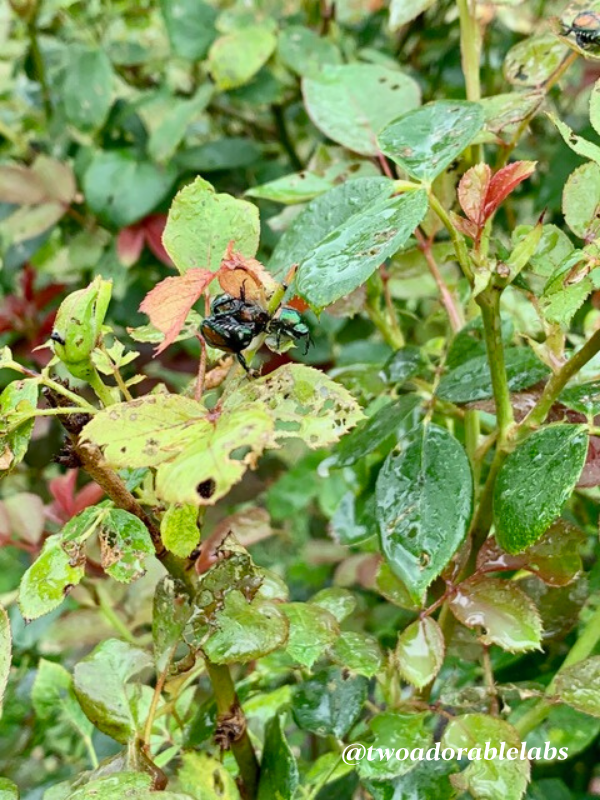
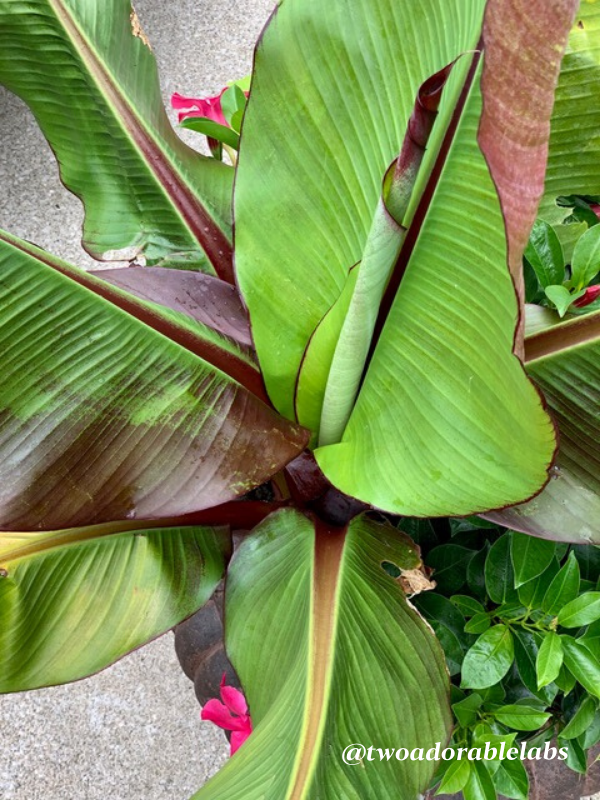
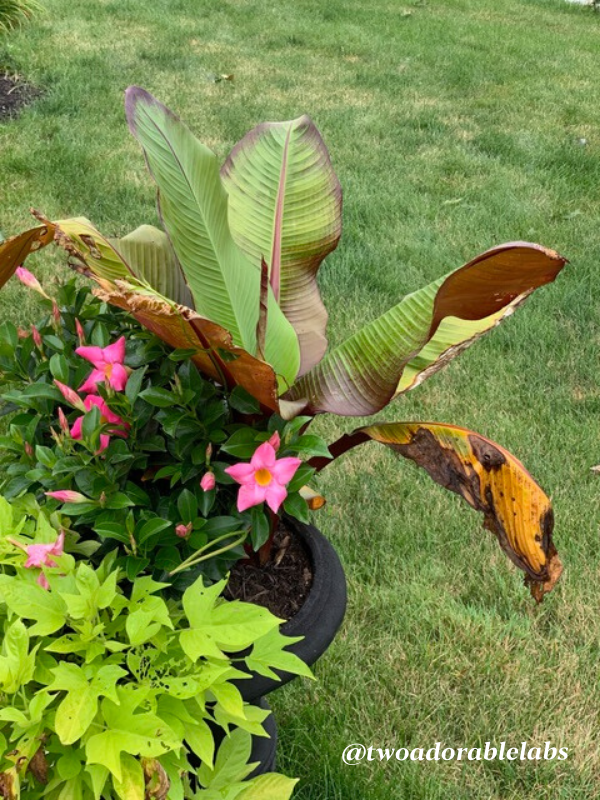

You Might Also Like
Air Quality & Pets: How To Stop Your Home From Getting Musty & Smelly
As absolutely amazing as a pet is, you can’t deny that they may give your home a certain odor. You know what we’re talking about; there’s a mustiness that comes with having a pet, which can make the quality of the air feel almost thick and a bit harder to breathe in....
Sick Day? How to Stay Nourished While You Recover
Happy Wednesday, everyone! Sick Day? How to Stay Nourished While You Recover When you're feeling under the weather, your body shifts into a healing mode. This requires the right fuel so that you can feel as well as possible as quickly as possible. While your appetite...
Do You Talk To Your Pet Like A Human? Psychology Says You Might Have These 7 Distinct Traits
Happy Wednesday, everyone! Do You Talk To Your Pet Like A Human? Psychology Says You Might Have These 7 Distinct Traits. I am always talking to Jake and Maggie as if we are having a big conversation, and they will answer back. I even say I’m sorry if I...
7 Signs Of An Overstimulated Dog
Happy Wednesday, everyone! I’m finally getting to our July 4th/birthday post that I’ve been promising. Jake and Maggie had a great birthday with lots of treats and presents. It was a hot day, and I made sure they spent enough time both indoors and outside to enjoy...
A Sweet Spin On A Classic BLT
Happy Wednesday, everyone! I cooked Mr. TAL a delicious meal this past weekend, putting A Sweet Spin On A Classic BLT, which made the cut for TAL’s blog! He said it was blog-worthy, so I had to share it with you! If you’ve been reading my blog for a while and have...
What Spring Weather Will Reveal About Your Home
Happy Wednesday, everyone! What Spring Weather Will Reveal About Your Home. Spring weather can be quite the revealing element! After weathering the winter out, with all the cold, rain, and dryness it brings, blooming into spring will highlight everything wrong with...


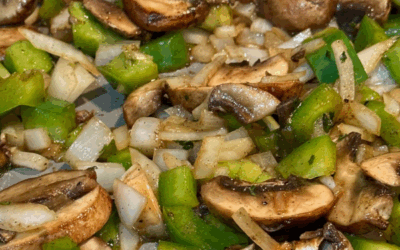



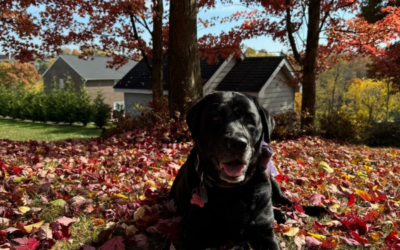
I am battling the same problem! They are so bad this year, destroying my rose bush and patio plants too! Between them and the rabbits, it’s a full time job protecting my flowers!
I am so sorry. I hope the Neem Oil helps you and your yard.